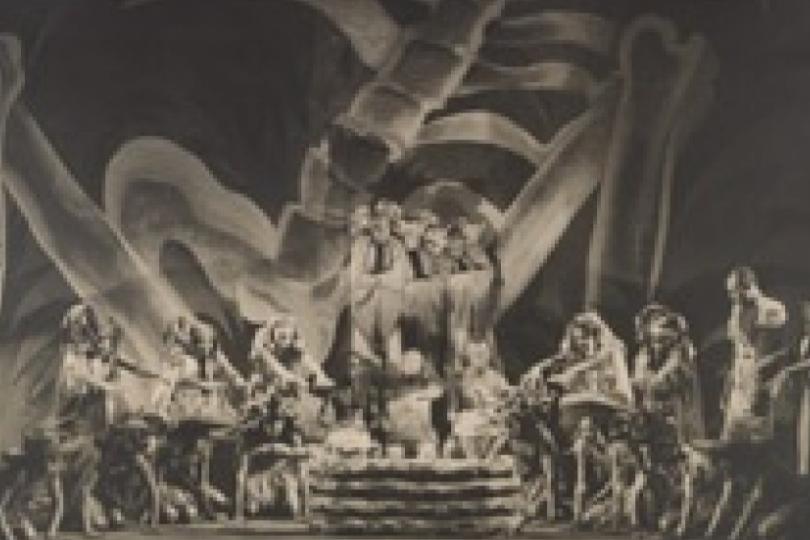Politics and Theater - the Federal Theater Project
Editorial

I guess I'm a "half empty" kind of guy.
I tend to believe that when you get a whole lot of people together they will usually choose to do the stupidest possible thing. Minnesotans keep proving me wrong. This week, they voted against two stupid, cynical, wrong-headed amendments to the state constitution. I'm surprised.
Four years ago, they voted for the Legacy Amendment which will provide about $1.2 billion in arts and cultural heritage funding over 25 years. I was surprised.
Maybe I shouldn't be.
Just over eighty years ago, in the depths of the Depression, the United States government created a program to put theater artists to work across the country. In coordination with the Works Progress Administration, the Federal Theater Project employed thousands of artists and entertained, educated and inspired millions of Americans.
With just under seven million dollars and under the leadership of Hallie Flanagan, the Federal Theater Project gave life to hundreds of productions - drama, musicals, dance, vaudeville, living newspapers, puppet shows, circus, children's theater and more.
Some of the productions became legendary. Orson Welles directed the New York City Negro unit's production of Macbeth. Set in Haiti, the all-black cast of 100 included a practicing witch doctor who, according to some, caused the untimely death of a less than generous critic.
It Can't Happen Here, Sinclair Lewis' cautionary tale of homegrown fascism, opened in 22 theaters in eighteen cities simultaneously.
One-Third of a Nation, a play about the need for affordable housing(!), was a huge hit, running for over a year and seen by over 200,000 people.
A generation of actors, directors, writers, composers and designers got their start with the FTP - Orson Welles, John Huston, Joseph Cotten, Arlene Francis, Will Geer, Canada Lee, Virgil Thomson and George Izenor among them.
There were unprecedented opportunities for African American actors and technicians - though not as much for producers or directors; the head of New York's Negro Theater was John Housman - and a new audience of African Americans went to the theater.
Of course, all this innovation and excitement couldn't last long. After just four years (1935-1939) the Federal Theater Project was shut down. The nation was climbing out of the depression, war was on the horizon, and money for artists - many of whom were quite possibly Communists - was even easier to cut than money for Big Bird is today.
With the start of World War II, the Federal Theater Project was largely forgotten. Some stars went on to profitable careers, others were blacklisted, others died. Black actors went back to playing maids and porters; black audiences melted away. Thousands of nameless actors, musicians and technicians joined the war effort, survived or not, carved out lives in the theater or not, and life went on.
Did all that imagination and energy make a difference? Would the American theater be any different if young Arthur Miller hadn't joined the FTP? Without the success of his "Voodoo" Macbeth and Doctor Faustus, would Orson Welles have been able to start the Mercury Theatre?
John Housman wrote:
"History works in mysterious ways: like bulbs that seem quite dead in the fall and amaze us with their blooms in the spring - it may be that our current theatrical renaissance (he wrote this in 1978) can, in part, trace its origin to Hallie Flanagan's Federal Theater - not so much to the actual structure that Congress condemned and dismantled in 1939 as to the spirit that animated it, the hope it offered, and the creative energy that it so miraculously generated." *
With the support of Minnesotans seen in the Legacy Amendment and the talent of all the young actors, directors, designers and playwrights in the Twin Cities, are we living in another age with that kind of spirit, hope and creative energy? Maybe I should stop being a "half empty" guy, stop complaining so much, and choose to believe that we are.
---------------
Want some fun? Check out the Library of Congress' archives of the Federal Theater Project.
---------------
*Free, Adult, Uncensored - the Living History of the Federal Theatre Project | New Republic Books | 1978


